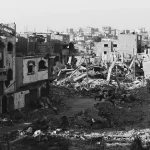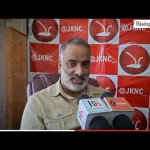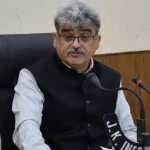The G20, formed in 1999, is a group of twenty of the world’s largest economies that meet regularly to coordinate global policy on trade, health, climate, and other issues. The Group of twenty countries was conceived as a bloc that would bring together the most important industrialized and developing economies to discuss international economic and financial stability. Its annual summit, a gathering of G20 leaders that debuted in 2008, has evolved into a major forum for discussing economics as well as other pressing global issues. Bilateral meetings on the summit’s sidelines have occasionally led to major international agreements.
It is not a permanent institution with a headquarters, offices, or staff. Instead, its leadership rotates on an annual basis among its members, its decisions are made by consensus, and implementation of its agenda depends on the political will of the individual states. The G20 is composed of most of the world’s largest economies, including both industrialized and developing nations; it accounts for around 80% of gross world product (GWP),75% of international trade, two-thirds of the global population and 60% of the world’s land area.
The G20 was formed in the wake of the Asian financial crisis, to unite finance ministers and central bankers from twenty of the world’s largest established and emerging economies. A decade later, at the height of the global economic crisis, the G20 was elevated to include heads of state and government. Many experts credit the G20 with quick action. In 2008 and 2009, G20 nations agreed to spending measures worth $4 trillion to revive their economies, rejected trade barriers, and implemented far-reaching reforms of the financial system. It has struggled to achieve similar success on its goals of coordinating monetary and fiscal policies, achieving higher growth, and rooting out corruption and tax evasion.
G20’s membership is still more representative of the current international balance of power than blocs of countries formed earlier, such as the G7. Several rising democracies, including Brazil, India, and Indonesia, belong to the G20, as do other influential autocratic countries, such as China, Russia, and Saudi Arabia. The G20 initially focused largely on broad macroeconomic policy, but it has expanded its ambit. The objectives of the G20 include; a) Policy coordination between its members in order to achieve global economic stability, sustainable growth. b) To promote financial regulations that reduce risks and prevent future financial crises c) To create a new international financial architecture. The 2018 summit in Argentina focused on fair and sustainable development, while the previous summit in Germany drilled down on issues including corruption, money laundering, and international tax havens.
Economic and financial coordination remains the centerpiece of each summit’s agenda, but issues such as the future of work, terrorism, and global health are recurring focuses as well. Broader agendas became more common in the decade following the global financial crisis, when the G20 was able to turn its attention beyond acute economic crisis management. But at recent summits, countries have struggled to reach a unified consensus—the hallmark of previous iterations of the conference—as the interests of high- and low-income economies continue to diverge. The group’s long-standing commitment to an international order based on WTO principles of reducing tariffs and other trade barriers has in recent years collided with growing economic competition between great powers. By gathering so many leaders together, G20 summits offer rare opportunities to develop such relationships and recast bilateral ties.
Although climate change was a focus of the 2021 Rome summit, the meeting yielded few concrete commitments on the issue. The countries agreed to curb emissions of methane and end public financing for most new coal power plants overseas but said nothing about limiting coal use domestically. G20 leaders also endorsed an agreement among nearly 140 countries to overhaul the system of international corporate taxation, paving the way for a 15 percent minimum corporate tax. As the 2022 host, Indonesia has sought to frame the agenda around three pillars of post-pandemic macroeconomic policy: global health architecture, digital transformation, and the sustainable energy transition. The 2021 summit was held in Italy. Indonesia handed over the G20, 2022 summit presidency to India at the Bali summit, with Prime Minister Narendra Modi terming it a matter of pride for every Indian citizen. The 2023 and 2024 summits will be hosted by India and Brazil respectively.
To decide which member nation gets to chair the G20 leaders’ meeting for a given year, all members, except the European Union, are assigned to one of five different groupings, with all but one group having three members, the other having four. Nations from the same region are placed in the same group, except Group 1 and Group 2. All countries within a group are eligible to take over the G20 Presidency when it is their group’s turn. Therefore, the states within the relevant group need to negotiate among themselves to select the next G20 President. Each year, a different G20 member country assumes the presidency starting from 1 December until 30 November. This system has been in place since 2010, when South Korea, which is in Group 5, held the G20 chair. `
As of 2022, there are 20 members in the group: Argentina, Australia, Brazil, Canada, China, France, Germany, India, Indonesia, Italy, South Korea, Japan, Mexico, Russia, Saudi Arabia, South Africa, Turkey, the United Kingdom, the United States, and the European Union. Guest invitees include, amongst others, Spain, the United Nations, the World Bank, the African Union , ASEAN and a country (sometimes more than one) invited by the presidency, usually from its own region. To decide which member nation gets to chair the G20 leaders’ meeting for a given year, all members, except the European Union, are assigned to one of five different groupings, with all but one group having three members, the other having four. Nations from the same region are placed in the same group, except Group 1 and Group 2. All countries within a group are eligible to take over the G20 Presidency when it is their group’s turn. Therefore, the states within the relevant group need to negotiate among themselves to select the next G20 President. Each year, a different G20 member country assumes the presidency starting from 1 December until 30 November. This system has been in place since 2010, when South Korea, which is in Group 5, held the G20 chair.
(M Ahmad is a regular writer for this newspaper and can be reached at [email protected])




